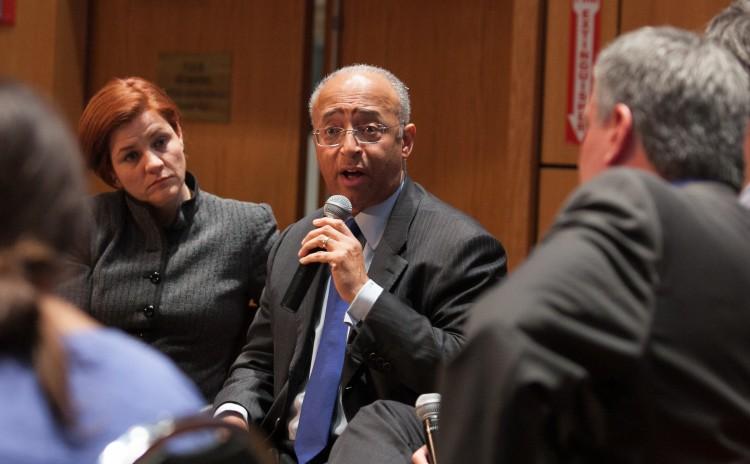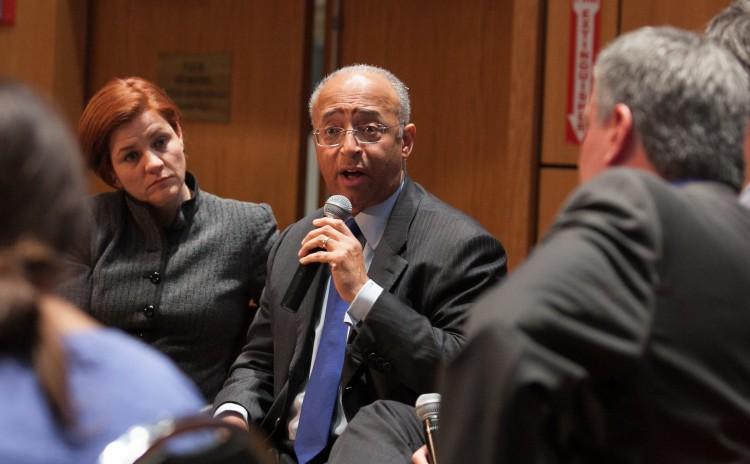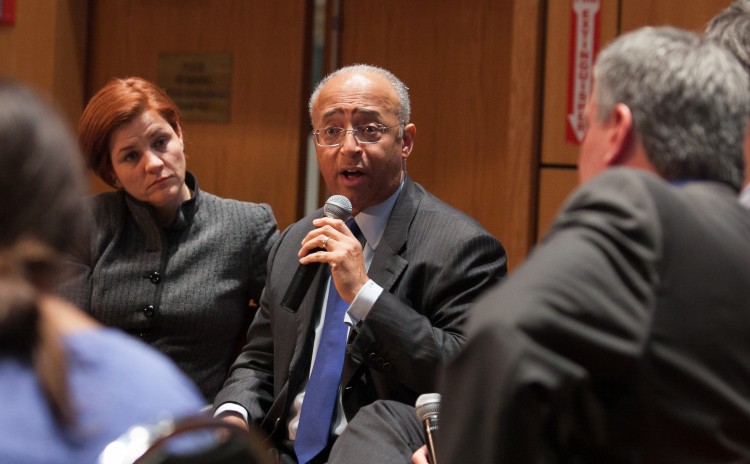NEW YORK—The presidential race is over, but the New York City mayoral race has, in many ways, just begun. At Fordham University on Nov. 19, leading candidates discussed what their education policies would be if elected in November 2013.
Mayor Michael Bloomberg has presided over the education system under mayoral control, which gives the mayor discretion to make decisions. The result has been widespread changes that critics have taken issue with, such as decreasing parental involvement in schools. About 6 out of 10 respondents to a Marist poll in April said they want the city’s next mayor to take the public schools in a different direction.
Mayoral control was a step forward, but the way Bloomberg has used it in the second and third terms have been backward steps, said Public Advocate Bill de Blasio.
“Our school system is largely stalled right now,” said de Blasio. “We cannot continue the status quo that Mayor Bloomberg created.”







